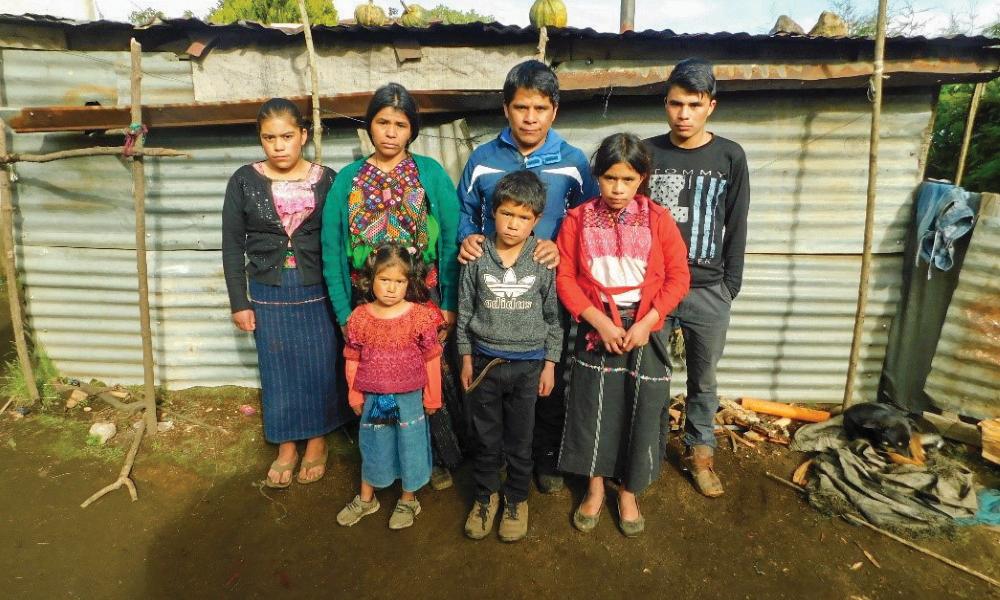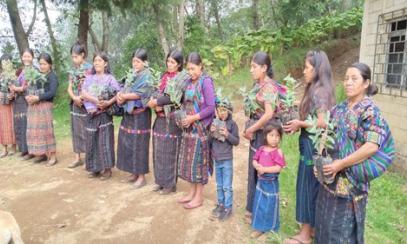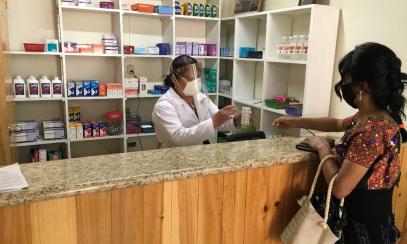
Family-To-Family’s History of Help in Guatemala
The Mayan Indians of Guatemala did not always live in the country’s highlands. The arrival of Christopher Columbus in 1492 and the invasion by Spanish conquistadors in the early 16th century changed life for native peoples throughout Central and South America. These conquests were extraordinarily traumatic and disruptive to the native people. They caused many of the Mayan Indians to abandon their fertile lowlands and relocate to the high elevations in the mountains of Western Guatemala.
In 1958, Pope Pius XII asked Spokane Bishop Bernard Topel to help in Latin America. In the 62 years since, the Spokane Diocese has supplied eight “Padres de Spokane” to the Mayan poor in Guatemala. The diocese began a radio station, helped with electricity and housing, opened schools, supported a doctor and four medical clinics, and maintained a strong religious presence via parishes and seminary support. The deficient component was an economic focus upon training and skills that would enable the native people to better survive in the high mountainous terrain.
Family-To-Family (FTF) began at St. Thomas More Parish in 1984 as a program to help the poorest families in the Spokane Mission area to learn productive skills and become more self-sufficient. Initially guided by Sister Barbara Ford, a SCNY missionary in Guatemala, the program solicited sponsors to donate $30 per month to help the most needy families learn skills such as weaving, carpentry, and raising animals so they could obtain land, build houses, send their children to school, and have a better, more sustainable life.
FTF began during the civil war period (1960-96) in Guatemala, when the U.S.-backed Guatemalan military staged a genocidal massacre of the indigenous Maya and Ladino peasants. More than 200,000 Natives, (along with many catechists and religious) were victims of the violence. Among them were Sister Barbara Ford and Father Stanley Rother, a friend of Spokane’s last “Padre” (Father David Baronti), who retired in 2017 and was replaced by a native priest. Father Stan, who was shot in his rectory in 1981, was beatified by Pope Francis in 2017.
Growing steadily from a few local sponsors at St. Thomas More Parish, FTF had 50 Mayan families in training by 1986 and 88 families by 1988. Growth was in part due to favorable publicity, such as articles by Mitch Findley in the national publications of St. Anthony Messenger and Our Sunday Visitor. Sponsorship has subsequently grown to well over 100, and 1,000 Mayan families have completed the three-year training program. FTF recently became an independent nonprofit, though it still operates in close coordination with the Diocese of Spokane.
Today, FTF functions with an active volunteer board of directors in Spokane and an on-site staff in Guatemala. FTF continues its weaving, baking, electrical, sewing, electrical wiring, embroidery and two new animal raising projects: poultry and swine, in three training centers in the highlands. Their quality products are now sold in markets in Guatemala and elsewhere. In addition, FTF fosters local employment of families in its coffee plantation, forestry, agricultural, and other activities.
For more information, readers may contact Family-To-Family at 509.590.3361, or email at ftfguatemala@gmail.com. Website: www.familytofamilyguatemala.com.



